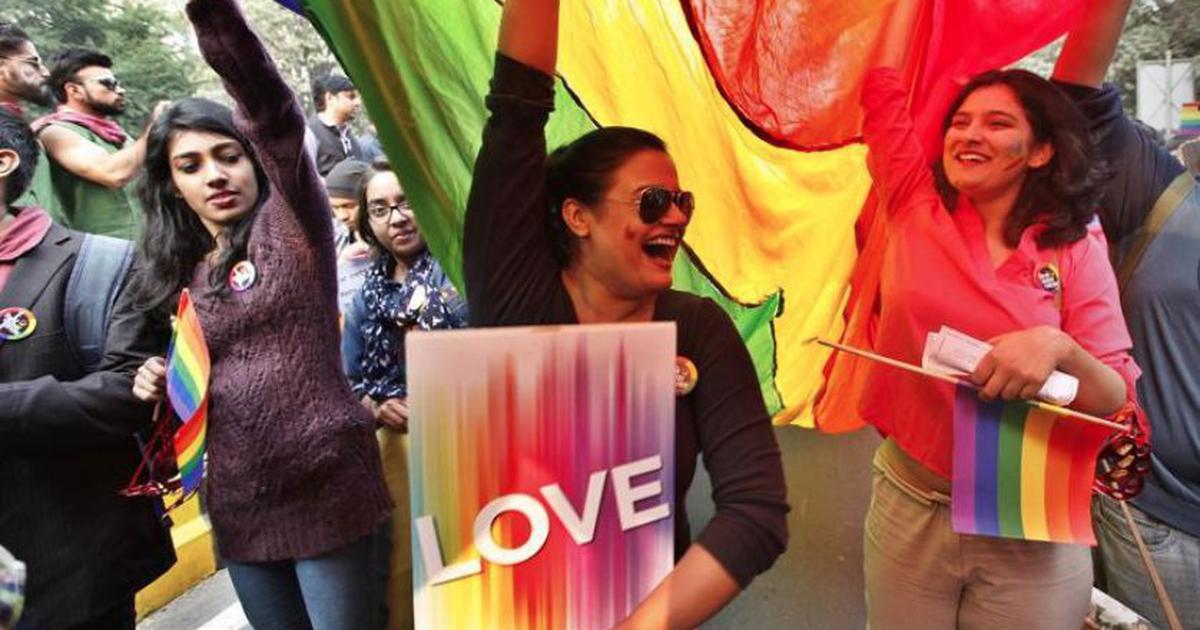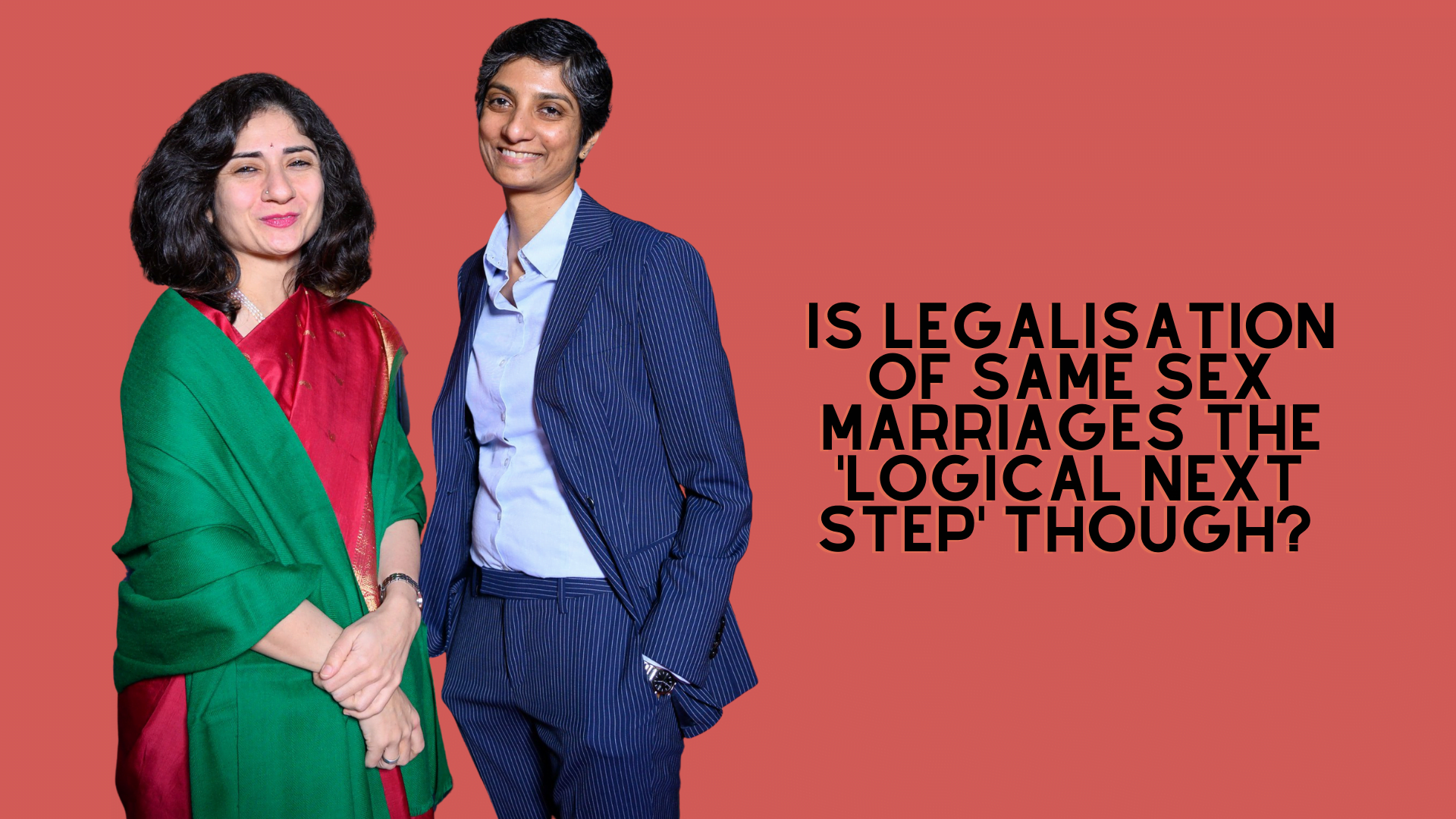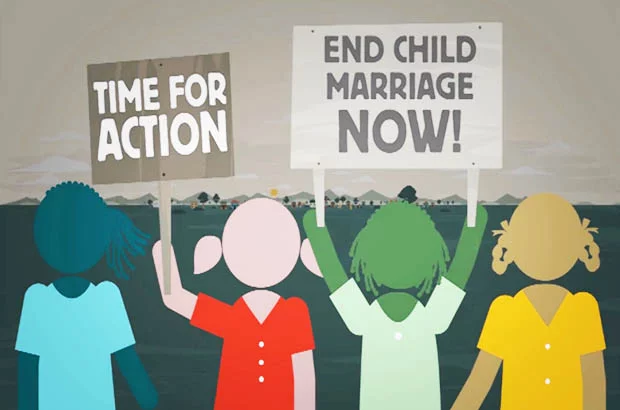After watching the news and various other media to learn about the current discourse on legalising same-sex marriage in India, I noticed that there are only two prominent perspectives being discussed. First, gay rights activists believe that the legislation will carve a path towards equality for the LGBTQIA+ community with regards to various rights that are currently only awarded to heterosexual couples. Second, conservative voices claim that same-sex marriage contradicts Indian societal and familial values and culture and have opposed the Public Interest Litigation (PIL) filed to legalise it in India.
However, after several weeks of pondering over the implications of the possible legalisation of same-sex marriages, I realised that many times, in our attempts to be progressive, we overlook several troubling factors in seemingly liberal ideas and support them blindly. Through this article, I will try to shed light on three loopholes in the seemingly progressive push for the legalisation of gay marriage in India.
Also read: An Open Letter To The Supreme Court Of India On Legalising Same Sex Marriages
1. Marriage is an inherently patriarchal institution
In my opinion, the dominant family structure observed in India, is in place for two main reasons: wealth and purity. Our society demands that wealth and property must be passed on from generation to generation and seldom leave the ancestral lineage. Additionally, it maintains that people shouldn’t marry outside the major pre-existing societal barriers of caste, class, and religion. Blood, much like money, must be passed down without ‘contamination‘ by outsiders.
The problem with these demands (aside from being deeply discriminatory) is that in the quest for maintaining purity and wealth, society restricts people (mainly women) from exploring sexuality and intimacy in their youth and rushes them to tie the knot with someone who they ‘make sense with’.
Many feminists condemn marriage because of these very connotations and its role to play in the patriarchy. So, why should the LGBTQIA+ community have to conform to this hetero-patriarchal standard? Why should we fit into a social structure that we want to dismantle?
Why should the LGBTQIA+ community have to conform to this hetero-patriarchal standard? Why should we fit into a social structure that we want to dismantle?
Now that the conversation of marriage has been brought up in the Supreme Court, I think the LGBTQIA+ community along with feminists have a chance to reimagine and re-inscribe partnership in the eyes of the law, and create a legal system that can grant anyone (regardless of gender and sexuality) the rights brought about by such a partnership. Why should two people have to get married in order to receive rights in say, insurance, property, adoption or inheritance? And this is not just for members of the LGBTQIA+ community. This applies to heterosexual couples in long term relationships as well. It could be friends or cohabitants too.
In an article by Rhaina Cohen for The Atlantic, she writes, “Because friendship is outside the realm of legal protection, the law perpetuates the norm that friendships are less valuable than romantic relationships.” The world we should imagine is one where everyone has the rights that marriage provides without having to make a restrictive commitment that lasts a lifetime.
Women in India, in particular, receive certain rights when they are married, such as the right to maintenance in case of divorce. Not many unmarried women in long term heterosexual relationships receive the same rights since not all live-in relationships are seen as equivalent to marriage in the eyes of the court.
So many queer people in this country are displaced and are forced to live in harmful circumstances because of the intolerance of their families and communities. Such a person should not have to leave any wealth that they own to those abusive guardians after their passing, and a civil union or companionship law would be able to assist them in making sure that everything that they own goes only to people of their choice.
We need to be able to think beyond the status quo of first parental and then spousal unions and stop trying to push LGBTQIA+ folx to fit into pre-existing folds and structures of marriage and family.

2. Gender neutrality can be anti-women
Gender neutrality, much like many seemingly progressive aspirations, isn’t really all that equitable. It places women in positions of extreme vulnerability in a society where the scales are already grossly tipped in favour of cis-het men. The purpose of terms like ‘wife,’ ‘husband,’ ‘man,’ and ‘woman’ in marriage laws (and a few other laws on sexual violence and harassment as well) is to protect a socially-marginalised demographic of individuals.
When a woman faces intimate partner violence, it is her right to file a case against her husband (or in-laws) under the Domestic Violence Act. This exclusivity ensures that women have safeguards and measures in place, in case of injustice.
If the law were gender-neutral, as not just queer rights activists, but also some feminists are proposing, the woman’s husband would be able to file a counter-case to manipulate the situation and mislead the legal proceedings. Making these laws gender neutral will further complicate an already exhausting path to justice for women and leaves room for the perpetrator to victimise himself. A law isn’t meant to look good on paper; it is meant to be put to use. So, when pushing so hard to change such a law that has been structured in such a deliberate, workable way and fought for, by the women before us, we must ask ourselves: Who will benefit from this? Who will manipulate this? And most importantly, who will be negatively impacted by this?
3. Marriage is not the “logical next step“
“The logical next step“
This is a phrase that I’ve been hearing time and over again on the news and in various media platforms but it just doesn’t sit well with me. To me, bringing about change and acceptance involves two things: legal/structural change as well as social change. Decriminalising homosexuality can be seen as a form of structural change. However, after 2018, there have been hardly any social change measures taken to ensure that the queer community is fully integrated into Indian society.
The logical next step for the community would involve anti-discrimination programs to protect them from the blatant violence, harassment and bullying they currently face in both educational institutions as well as places of work. The logical next step would involve creating affirmative action and reservation for the community. The logical next step would involve taking a good look at our current sex education curriculum and filling in the huge, dangerous gaps in our current system (including information and discussions on consent, gender, sexuality, sexual health and safe sex). The logical next step would involve social inclusion, shelter homes, upliftment.
Unfortunately, none of these measures have been taken which means that only a few privileged queer people, who are already socially accepted, have managed to fully enjoy the decriminalisation of homosexuality. And if you think about the queer rights movement, marriage was never the agenda of the community as a whole. It is only a certain demographic—upper class and upper caste queer people—that is demanding the legislation of same-sex marriage. Moreover, while the general demeanour of the community has a reputation of being inclusive of various marginalised people, the truth is, that it is not uncommon to find extremely casteist, Islamophobic, and classist people in the community. Many of these people have absolutely no intention of including marginalised LGBTQ folx in their fight.
Take lawyers Arundhati Katju and Menaka Guruswamy’s speech at Oxford University for example. They use this phrase multiple times in their argument for marriage equality and the mainstream Indian media deems these two upper caste, privileged women as the poster-people of the fight for marriage equality. This is despite the fact that they have hardly ever opened up these discussions to marginalised members of the community. We need to focus on making Indian society a comfortable place for all LGBTQIA+ people so that they feel free to express themselves sexually and romantically. Saying ‘marriage is the logical next step‘ is loaded with entitlement and it is only being said because it’s the logical next step for privileged people.
We need to focus on making Indian society a comfortable place for all LGBTQ+ people so that they feel free to express themselves sexually and romantically. Saying ‘marriage is the logical next step‘ is loaded with entitlement and it is only being said because it’s the logical next step for privileged people.
At the same time, I stand by what I said in the first section about companionship laws as they are definitely necessary, but I think we need to start being proactive and creative and think outside the framework that patriarchy has provided us with. As a nation, the current conversations on marriage can either be a path towards completely revamping the way we view family, love, and relationships or it can be just another way for us to take away beauty, intersectionality, diversity and freedom from the LGBTQIA+ community and force them into the regressive structures of Indian law and society.
The choice is truly ours.
Also read: Same-Sex Marriage In India: Unveiling The Marriage Project
Zara is someone who is reluctant to make small talk but will enthusiastically engage in deep discussions on musical theatre, feminism, and baked goods. You can find her on Medium, check her art & writing on her art account and find her here.





The point is that conservatives are likely to recognise a same-sex relationship if it is legitimised through the institution of marriage. I feel like there should be an option given to same-sex/LGBTQIA+ couples to marry, because this provides them autonomy. In a society like India, where marriage is often the next step, whether a person is “privileged” or not, I don’t think debating the “purpose” served by marriage is relevant. A big part of intersectional/BIPOC feminism is to choose what they want. So, if 2 people decide to marry out of their love and commitment, it is in no way patriarchal.
A very welcome alternative view, and companionship laws sound just heavenly. Certainly something to mull over. Just why such a pejorative take on these awesome women who fought boldly through the legal channels – that does and has made a major difference, and opens up doors for further social action and activism.
I mean that jibe on ‘folx’ was really unnecessary! (though admittedly funny) And perhaps its a very subjective, and might I say. a mistaken understanding that the leading ladies haven’t started conversations with and about the marginalized. They give voice to women (albeit amazing) such as Dutee Chand , who expressly articulated the want (for marriage), for that is what the larger society can wrap its head around. Also, bdw they themselves represent a cross caste relation (which I begrudgingly mention actually, cuz must we always use those glasses and categories to view relations).
The privileged upper class in fact gets relatively easier acceptance. Marriage is not a childish demand for an extra that the upper class same-sex couples want, for most (regardless of class and caste in India), its how they have envisioned commitment and long term stable relationship. And its an option and a choice that must be available.. as also the delicious sounding companionship and civil relationships you mention.
Why manufacture a class divide where perhaps there is none!
Yes yes we need more, awareness, assistance, help groups – here’s a start, and we can all get behind it, else think through together without the animosity.
I would argue that legalizing same-sex marriages is a necessary step towards dismantling the inherent patriarchy in the institution of marriage. The patriarchy stems from the gender roles assigned to ci-het couples. With two people of the same sex in a marriage, these constructs can be shattered, and marriage will then be seen as a union of equals with the terms of engagement set forth by those who enter it instead of society imposing the roles on them.
Although I personally agree with your views, you should understand that not everyone thinks the same way. Several same-sex couples DO want to marry. And if they wish to, they should be given that option. Plain and simple. You can’t have two seperate laws for heterosexuals and homosexuals.